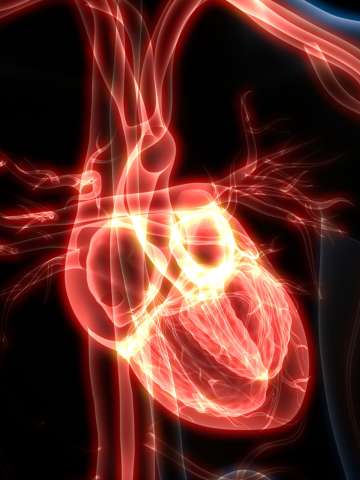Cardiac Rehabilitation
Our Cardiac Rehabilitation Program is a supervised and monitored outpatient program designed to help improve your cardiovascular health following a recent heart event, procedure, and/or surgery.

Why choose UCLA Health for cardiac rehabilitation?
The UCLA Health Cardiac Rehabilitation Program provides comprehensive, team-based care. We help improve your cardiovascular health through exercise, nutrition and other lifestyle changes. Our program is one of the only cardiac rehab programs in the area, offering access to targeted treatment.
Highlights of our program include:
Patient-centered care: Our experienced and personable staff focus on helping you feel informed and at ease. We answer all your questions and arm you with the tools you need to improve your heart health. Our patients consistently report high levels of satisfaction with our team and program.
Team-based treatment: The cardiac rehab team includes exercise physiologists, nurses, psychologists and nutritionists who work together to create personalized treatment plans. We also work with your primary care provider or cardiologist to help you experience the best outcome possible.
Proven results: Studies have shown that cardiac rehabilitation improves your cardiovascular health. It also lowers risk factors such as high blood pressure, excess weight, elevated blood sugar and high cholesterol. You can trust our team to create a care plan that brings results.
Peace of mind for high-risk patients: We check your vital signs during exercise sessions to ensure you stay safe and within your target heart rate range. Health emergencies are rare, but if they do occur, you have easy access to the cardiologists on-site at UCLA Health hospitals.
Research focus: Our cardiac rehab outcomes show that these services directly improve cardiovascular health. UCLA Health researchers were part of a key trial that established heart failure as a reimbursable diagnosis for cardiac rehab. Before this trial, it wasn’t known if exercise was helpful for patients with heart failure. Today, insurance companies cover cardiac rehab to help treat the condition.
Who could benefit from cardiovascular rehabilitation?
Cardiac rehabilitation can help you recover from heart emergencies, conditions or surgeries. The program may be right for you if you’ve had:
- Acute myocardial infarction (heart attack): A medical emergency that occurs because of a sudden blockage of blood flow to the heart
- Coronary artery bypass surgery: A procedure that redirects blood flow around damaged or clogged coronary arteries (blood vessels that supply blood to the heart)
- Coronary stent: A small mesh tube placed in a narrowed coronary artery to help keep it open and restore blood flow
- Heart failure: A condition in which the heart doesn’t pump blood as efficiently as it should to meet the body’s needs
- Heart or heart-lung transplant: Surgeries to replace a failing heart or heart and lungs with organs from a donor
- Heart valve repair or replacement: Procedures to fix a damaged heart valve or replace it with donor tissue or a mechanical valve
- Percutaneous coronary intervention (PCI): A type of heart procedure that uses small, hollow tubes (catheters) and a balloon to open a blocked artery (often called angioplasty)
- Stable angina: Episodes of chest pain, often triggered by exercise or cold weather, with an underlying cause of heart disease
What to expect from cardiac rehabilitation
Cardiac rehabilitation typically includes one or more weekly outpatient sessions over several weeks. These sessions include:
Exercise: You participate in an hour-long, instructor-led exercise session that includes 45 minutes of aerobic exercise and 15 minutes of resistance training. We explain proper form, make real-time adjustments and track your vital signs throughout the class.
Psychological support: You meet with a psychologist to discuss your cardiac rehabilitation plan. They can identify any potential barriers to making lifestyle changes and give you resources to help you stick to your cardiac rehab plan.
Nutrition counseling: We provide optional one-on-one sessions with a nutritionist or dietitian. These specialists evaluate your current eating habits and recommend dietary changes to improve your cardiovascular health.
Contact us
Call 310-825-0014 to request an appointment for cardiac rehabilitation at UCLA Health.
Find your care
Our experienced team provides personalized care plans with a patient-centered approach. Call 310-825-0014 to learn more about our cardiac rehabilitation program.

